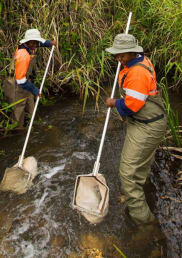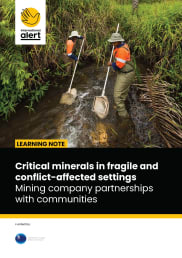Making social accountability work: Promoting peaceful development in Uganda
This report is the product of a research study on social accountability mechanisms in projects funded by multilateral development banks. The research assessed how social accountability and conflict sensitivity can be integrated into large-scale development projects, including through technology-based solutions.
The aim is to ensure that such projects are better able to make positive contributions to peace in fragile and conflict-affected situations.
The research focuses on two case study projects in Uganda funded by the World Bank: the Lakes Edward and Albert Fisheries Pilot Project (LEAF I), funded by the African Development Bank; and the Northern Uganda Social Action Fund Project (NUSAF II), funded by the World Bank.
The report seeks to unpack the meaning of social accountability in order to understand the processes and circumstances that influence the effectiveness of social accountability initiatives and to explore the connections between conflict sensitivity and social accountability.
Since multilateral institutions work extensively through central and regional government structures, greater accountability in these projects also provides the opportunity to improve citizen–state relations – a key dimension of peace and a further aspect of the projects considered by this research.
The report also looks at the role that technology can play in improving accountability and governance processes, particularly in light of the limited focus so far on technological solutions to encourage responses from decision-makers.
In addition, it considers the conflict sensitivity dynamics of each project, their recognition of local conflict dynamics and their contribution to peaceful development.






